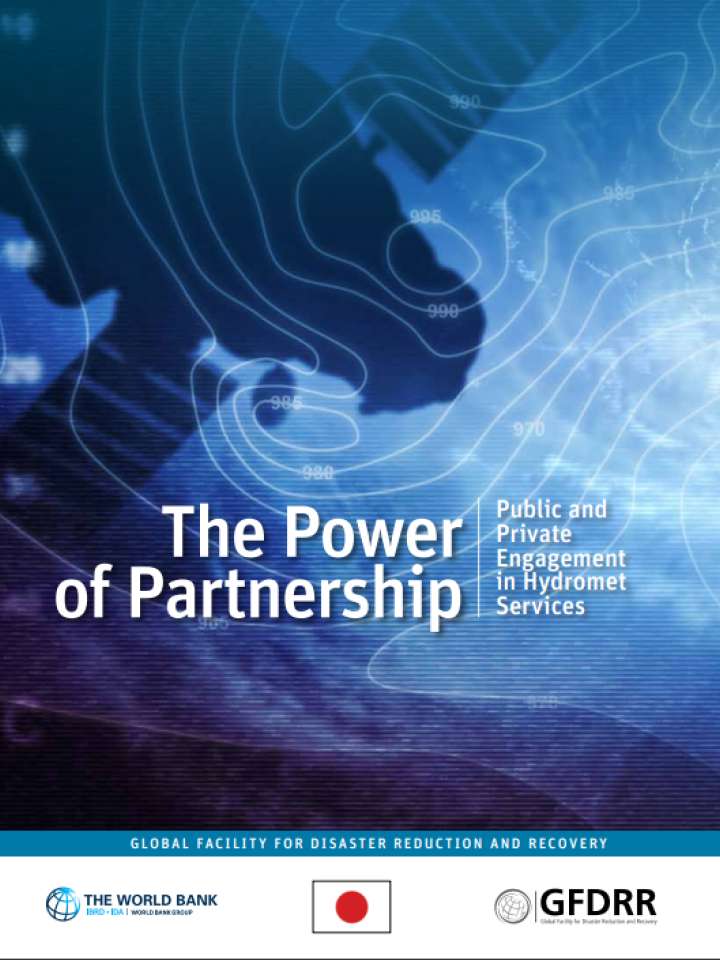The power of partnership public and private engagement in hydromet services
This study provides guiding principles for public-private engagement (PPE) and a shared understanding among public, private, and academic stakeholders of the hydromet value chain and its economics. The study is based on evidence collected through the analysis of eight countries selected as case studies (Ghana, Indonesia, Japan, Myanmar, U.K., U.S., Germany, and Israel) and interviews with more than 50 stakeholders from the public, private, and academic sectors. It provides guidance to regulators, hydromet service providers, and private actors as well as development practitioners to achieve successful public-private-academic engagements.
This study is designed to answer the following key questions:
- What are the characteristics, advantages, challenges, and potential risks of the various PPE models in the hydromet sector?
- What are the available options for developing countries that wish to streamline and augment public and private engagement to strengthen the provision of hydromet services, and, accordingly, the conditions necessary to succeed?
Find here some of the main recommendations based on the conclusions (pp. 63 to 65) of this report. For more details, please refer to the report (pp. 65 to 67):
Country-specific strategy
- Develop country-specific approaches to foster public and private engagement and to develop the hydromet value chain
- Develop an overall strategy at the country level to maximize the socio-economic benefits of the full hydromet value chain
Institutions and policies
- Support the development of a transparent legal and regulatory framework
- Properly and sustainably fund the NMHS according to its role as defined in the hydromet strategy
- Aim for open and free access to all data and public services produced by public entities
- Consider minimal regulation of the non-public hydromet services market
- Minimize the role of public entities in the provision of non-public hydromet services
- Ensure the consistency of severe weather warnings
Dialogue and awareness-raising
- Develop a structured, continuous, and open dialogue between the public, private, and academic sectors.
- . Invest in awareness-raising, especially concerning the socio-economic benefits of hydromet services in general and their specific benefits for businesses
Development projects
- Shape future development projects based on the guidelines laid out in recommendations 1-10.
Explore further
